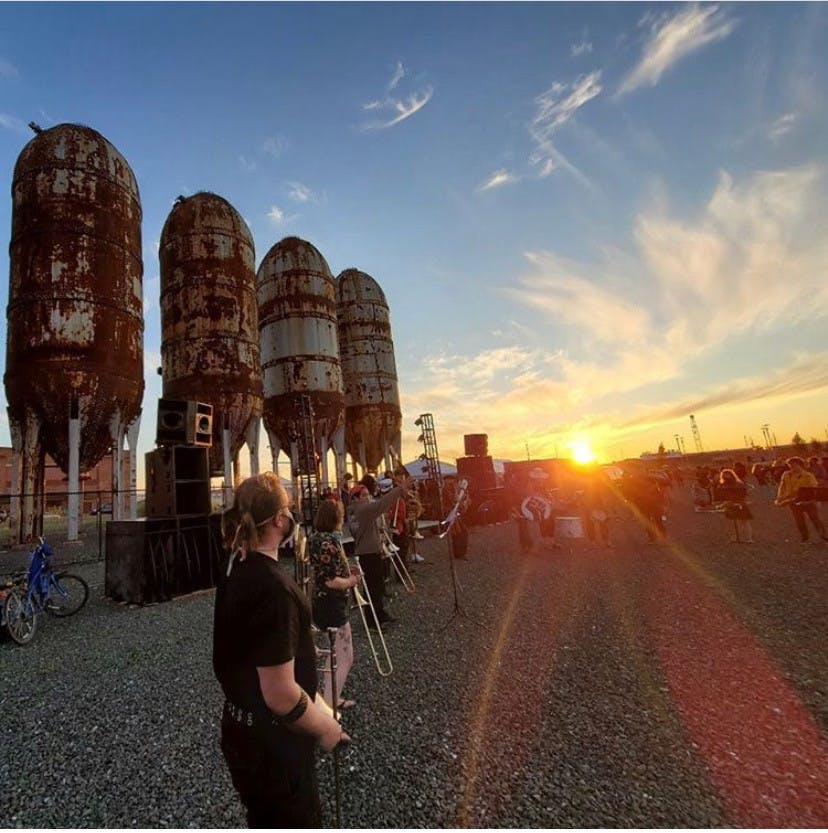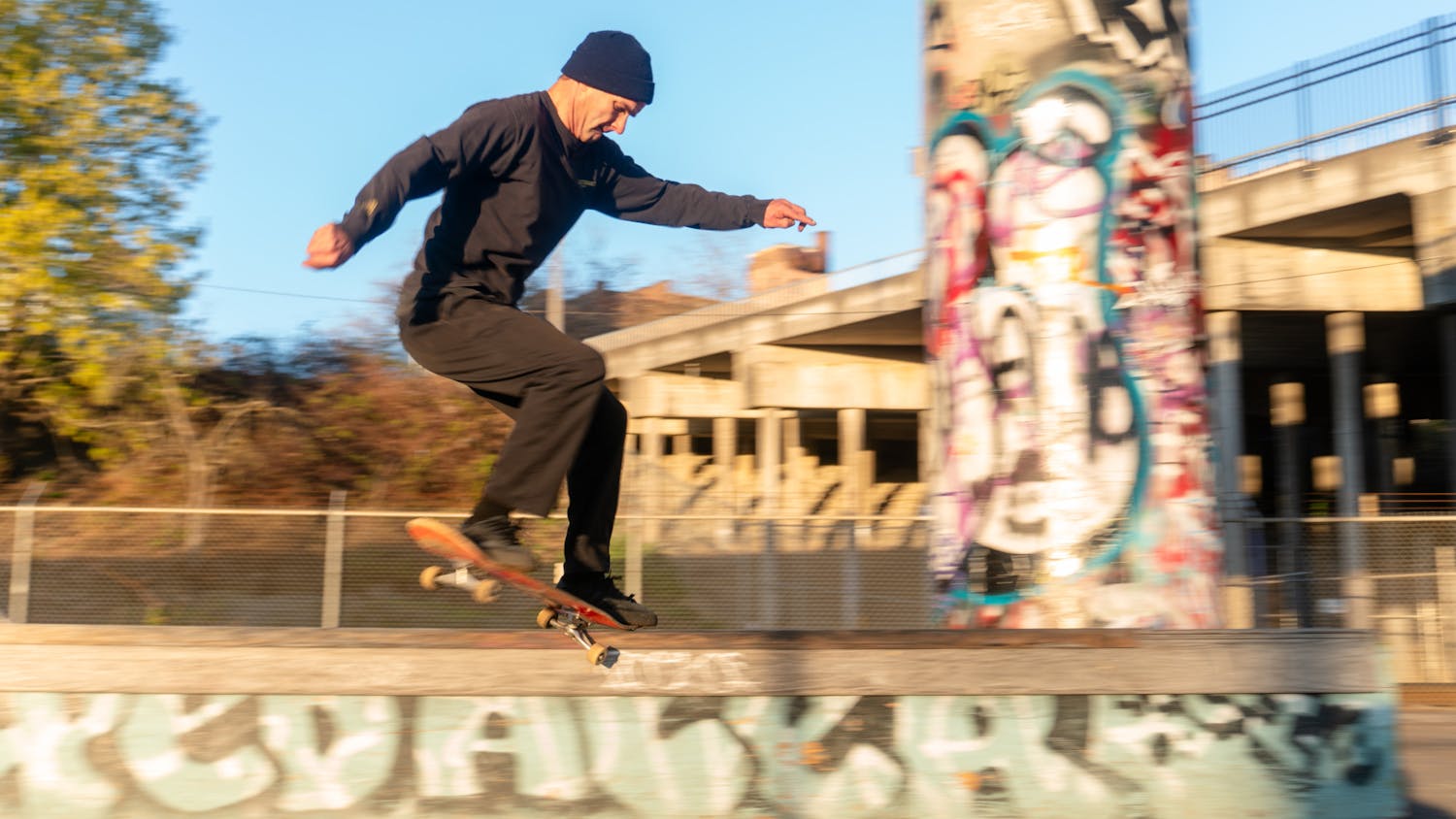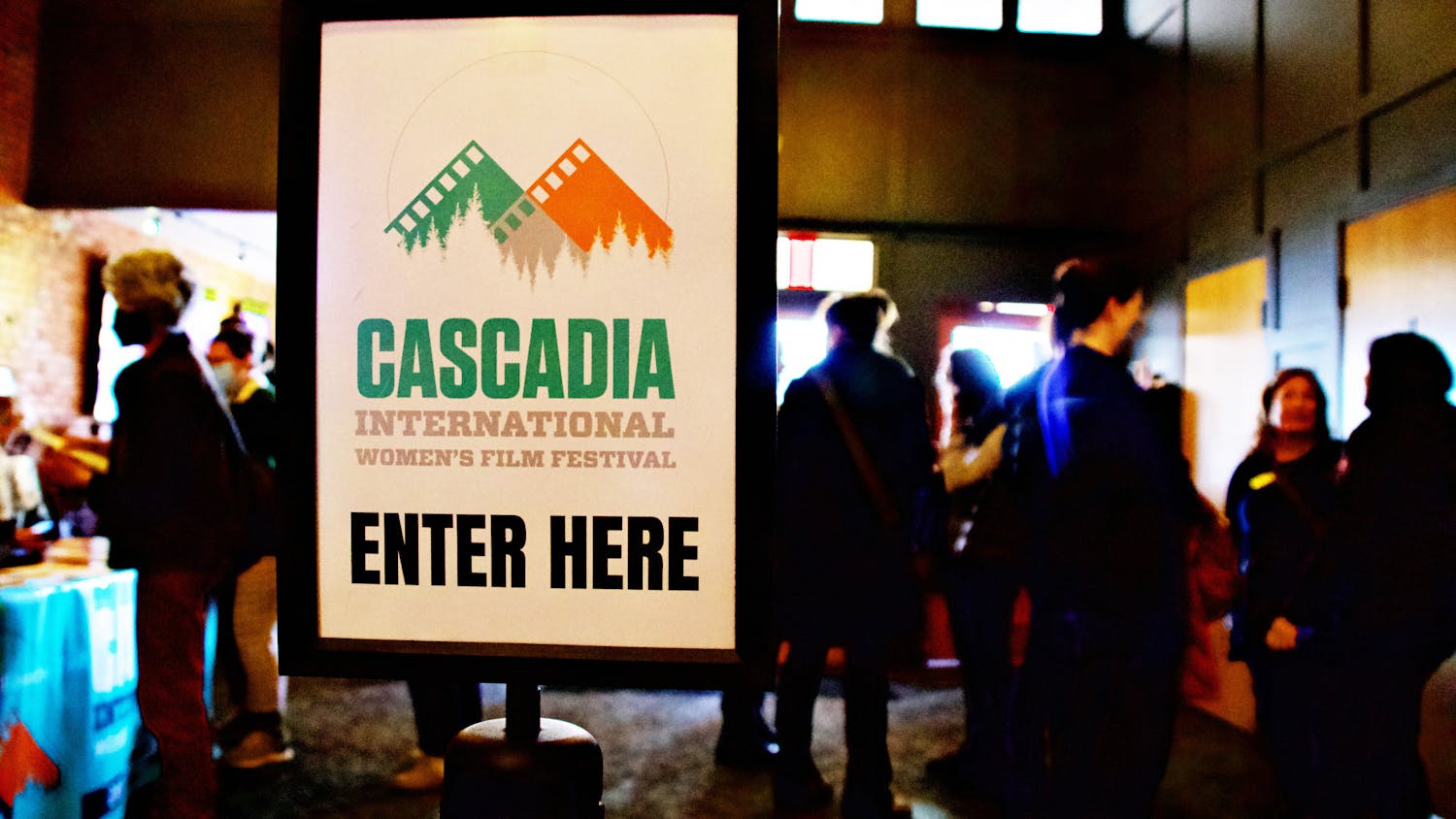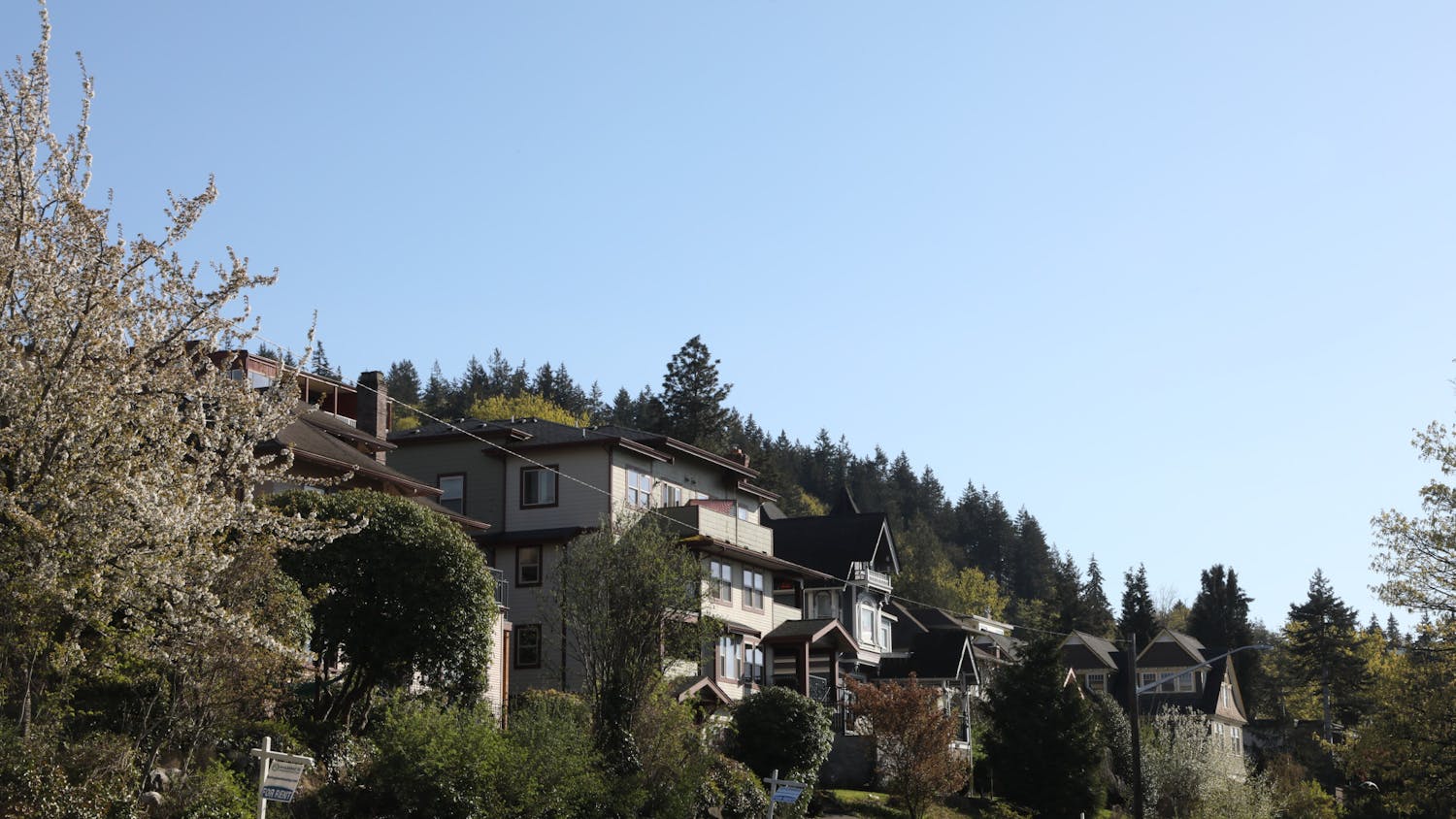Music’s historical role in Bellingham protests

By Olivia Hicks
Music is ingrained in everyday life: flowing from the headphones of a pedestrian, a newlywed couple's first dance or quiet classical music in a coffee shop. Now, local musicians are revolutionizing music’s importance in creating a movement.
A Bellingham jazz band, Analog Brass, began performing at protests in Bellingham this summer. Maxwell Lemke, a founding member and Western student, attended protests and led chants in the past. George Floyd’s death and a call from a local activist sparked the idea to bring the band’s music to protests.
“It was the least that I could do to provide support for this movement, because when it comes down to it there's not much that any individual can do in the way of creating structural change,” Lemke said. “That's something that our leaders need to do. But as musicians, we can inspire our neighbors, colleagues, coworkers, staff and community members to push for structural change and our leaders to actually make a difference.”
Analog Brass performed at Rhythmic Unrest: A Rally for the People on July 4. The protest, led by the Bellingham protest organization Stand Speak Listen, used music to protest injustice and uplift BIPOC and LGBTQ+ voices, according to the organization’s Facebook. Performers included spoken word poets, DJs, rappers, hip-hop artists and other musicians.
Noel ‘NO-L’ Morales, a Bellingham hip-hop artist, also performed at the event. Morales began writing music inspired by his Puerto Rican roots, which evolved into a hip-hop and R&B style. The rally was Morales’ first solo performance.
“At first, it was nerve-wracking. There were just a lot of people,” Morales said. “But it felt like I hit it spot on, it just felt right. It was something I felt like I needed to do for so long and I found a perfect opportunity by just putting passion behind it.”
Morales described how music brings a certain unity to protests that chants and speakers cannot.
“What makes it so different to protest when music is involved is that music is pretty much universal,” Morales said. “Even if you have all the hatred in your heart, you're still gonna love music, some type of music. It kind of brings things together more collectively rather than aggressively.”
Live music is not only used to unite people, but it also acts as a form of resilience, Lemke said.
“We're all trying to do something that we're all really passionate about, but showing up consistently can wear you out,” Lemke said. “Music is a way to renew that energy.”
This sentiment shares the common Black Lives Matter movement motto that protests are a “movement not a moment.”
Sheri Hinshaw, the Seattle Labor Chorus’ administrative coordinator, said music inspires participating members as well as bystanders.
The chorus is founded in protest music. Since its origins in 1997, the group has represented labor unions and showed dedication for social and economic justice, Hinshaw said.
Many of the songs the chorus performs are parodies of popular songs so people walking by will recognize them. For example, Hinshaw said they perform a parody of “I Will Survive” by Gloria Gaynor titled “I Will Organize.”
“When you're onstage and you have a microphone in a big gathering, you're really trying to get the attention of those people who are just walking by,” Hinshaw said. “You want to be able to engage your fellow citizens who didn't feel it was important enough to be at the protest, but are doing their Christmas shopping or they're just out and about.”
Since COVID-19, the chorus has guided workshops for universities rather than singing in public. One of those workshops included the Western Glee Club on Oct. 29. Bailey Hadley, a first-year Western student and new Glee Club member, was moved to action by the chorus.
“I thought that it was really cool seeing how music is so impactful,” Hadley said. “It can make such a big difference. They weren't trying to sound pretty, they weren't adding any cool harmonies or anything, it was like a chant. They just wanted to get their message across.”
The Whatcom Focused Youth Movement, a community activism organization, has hosted a variety of events. These vary from Black Lives Matter marches and U.S. Immigration and Customs Enforcement protests at the Ferndale border patrol station to vigils for Breonna Taylor and George Floyd.
Music differs at each of these events, dictates the mood and is not always planned, said Malachi Ledbetter, a protest organizer for the Youth Movement. During a vigil for Taylor, protesters began singing spontaneously.
“I think that music also allows people to express emotions and mourn in a way that you can't really do with a speech,” Ledbetter said.
While all protests are not the same, music can be used across multiple social justice movements, said Felicia Youngblood, professor of musicology at Western. For example, the song “We Shall Overcome” by Rev. Dr. Charles Albert Tindley, a Black composer and minister, was popularized during the civil rights movement. It has since been used in the women’s movement, Black Lives Matter marches and following 9/11.
Lyrics, whether performed at a protest or not, can fight against systems of oppression, Youngblood said.
While musical groups like Analog Brass began performing at protests this summer, protest music is not a new phenomenon, Youngblood said.
In Washington, music has been used as a political weapon from labor union protests in the early 20th century to the Riot Grrrl Punk movement, an underground feminist movement in the 1990s. Outside of the U.S., protest music has a deep-rooted history in global revolutions, Youngblood said.
“Music has never been separate from culture,” Youngblood said. “With that, these social contexts are automatically interwoven with the music that we listen to and sometimes in ways that we don't even realize. This has been the case for hundreds of years.”
While the Seattle Labor Chorus has taken precautions during COVID-19 and reduced group singing, some musicians think music is needed more now than ever in protests. Jordan Moss, or ‘The Rhetorician,’ a Bellingham rapper and hip-hop artist, also performed at the Rhythmic Unrest event.
Moss said protest music during the pandemic acts as a form of community aid.
“It serves as a glue,” Moss said. “People are definitely longing for music.”
*Music on playlist suggested by Jordan Moss, Noel Morales, The Whatcom Focused Youth Movement and Maxwell Lemke






